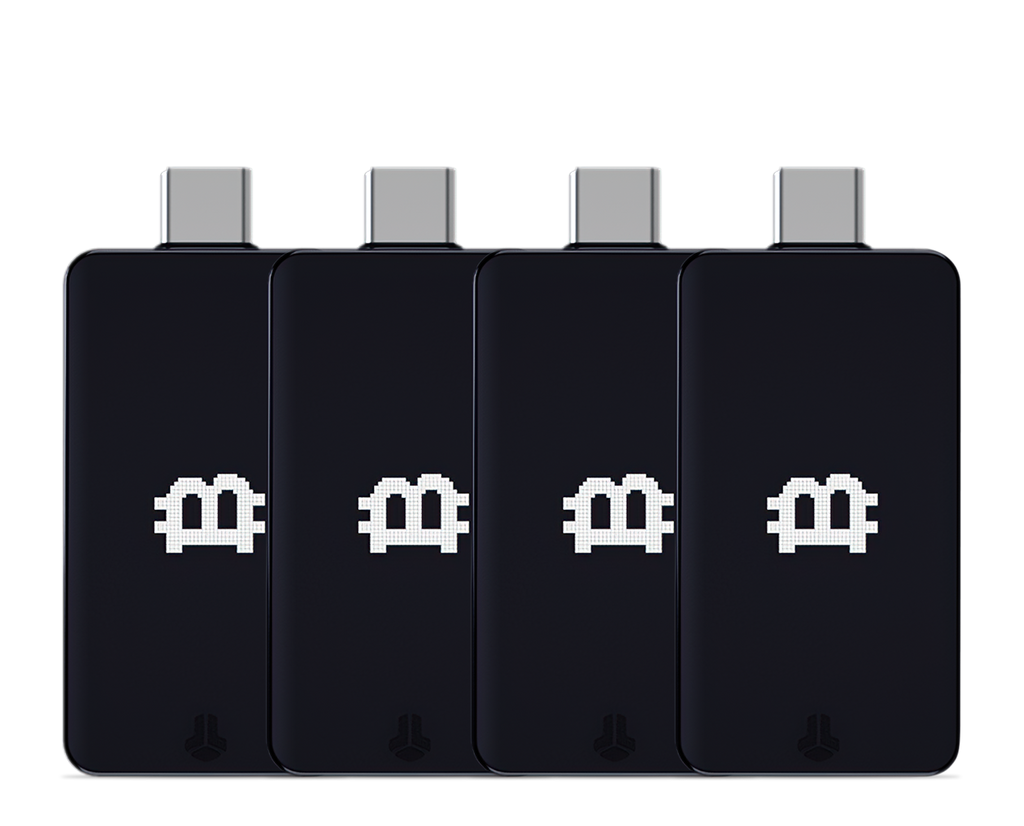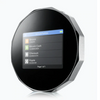
The hardware wallet is a sort of a Bitcoin wallet used to store private keys and cryptocurrencies. Out of all forms of digital and crypto wallets, hardware wallets are the safest.
The cryptocurrency can be received and sent via the hardware wallet - but with better security for crypto assets. If you are new in the world of cryptocurrency and wallets, you are probably asking: how do crypto hardware wallets work?
Below, we will discuss how they work & what their advantages are, so let's get on it!
How Do Crypto Hardware Wallets Work?
Hardware wallets store private keys, and private keys are essentially just a series of random numbers. The hardware wallets can access the cryptocurrency stored on the blockchain. The private key is used to authenticate the user on the blockchain, enabling the user to send and receive crypto.
The hardware wallets used to trade directly can also be referred to as cold storage or cold wallet, as they don't have a connection to the Internet, making them safe from hackers.
Hardware wallets have a simple task - to hold the private key away from cyber attacks and security risks and store the private key completely offline, as they are not connected to the Internet to price security.
Another essential thing hardware wallets do is confirm transactions and easily trade multiple cryptocurrencies. The private key, in this case, is used as an extra layer o security, serving as the user's signature.
The private key is safe from hackers, as it is impossible to replicate or forge - to provide security, it consists of random characters. The private key is always PIN code-protected on the hardware wallet to prevent malicious actors from getting in. The key can also protect it with the optional passphrase.
That can give you peace of mind in case your hardware wallet gets lost or stolen - as it cannot be used by someone else to perform a blockchain transaction and may leave you wondering how you will access your digital assets without your private keys.
Well, the user's private keys and the secure hardware aren't the only things you can use to access the Bitcoin wallets. Once you get and establish your secure hardware wallet, you will get a recovery seed phrase used to get a new private key and regain access to your crypto assets. When you get your seed phrase, you should store it in a safe place to prevent it from getting stolen.
You can also access the Bitcoin hardware wallet by plugging it into the USB port via it and unlocking it using the PIN code. Then, you can perform Bitcoin transactions with private keys. Some Bitcoin hardware wallets even have a small screen that makes it easier to access the private key.
How Does A Hardware Wallet Protect Your Bitcoin?
Ever since trading Bitcoin has become a thing, there have been viruses circulating the web and trying to steal private keys. These viruses recognize the keys for Bitcoin and send them to hackers - and with the rising popularity of Bitcoin, the viruses are getting better and better at it.
So, the point of the hardware wallet is to prevent your private keys from ever going online - meaning they always stay in your device, which you plug in to confirm the transaction. The hardware wallet can help Bitcoin users feel safer when doing transactions, as they are far more secure than other types of wallets.
Even with the best software wallet with maximum security, you cannot be as sure as you can be with your hardware wallet that your Bitcoin will always be there. Hardware wallets are not connected to the Internet, so no matter how good the viruses become at targeting private keys, yours won't be one of them.
Do You Need A Hardware Wallet?
As a Bitcoin trader, security is one of the things you will always have to keep in mind. Cold storage wallets are the safest option as they aren't connected to the Internet, and many traders like having their private keys stored in cold storage.
That keeps the private keys safe on a cold crypto wallet - so the only way you can lose it is by physically losing the secure hardware device. But, as we have already mentioned - even that isn't the end of the world, as you can still access it using the recovery phrase.
The ultimate reason apart from the security is the convenience of most hardware wallets. You can simply plugin the hardware wallet to receive or send Bitcoin without the need to take it from your Bitcoin wallet to trade online.
Of course, do remember that hardware wallets can experience security risks during trading. Software in the app used for trading can be tampered with, so be careful - security breaches can happen even at the hardware level. One of the most common scams is a hacker swapping Bitcoin addresses, so crypto users send the assets to a different recipient's Bitcoin address.
Essentially, you do not need a crypto hardware wallet instead of a software wallet - but hardware wallets are far safer. Many traders were left worried after the security breach at a hardware wallet company called Ledger - which was attacked by hackers and potentially released malicious updates for the Ledger wallet.
Even if you have a Ledger wallet, do not worry - scams like these are much harder to pull off than phishing scams for hot wallets.
So, do you need a hardware wallet? Well, you can store crypto without one but a hardware wallet is the best way to store crypto assets safely, with maximum security.
Benefits Of Using Different Wallets To Store Your Private Keys
The first advantage everyone will point out is how easy it is to transfer funds from one Bitcoin address to another for online wallets. You don't need a specific device to access it - like with a crypto hardware wallet - you can access it from any device as long as that device can connect to the Internet.
Many people like using an online wallet because it's faster, and you don't need a physical device to store all of your crypto assets. The downside is - the private keys are stored online - making the cryptocurrency wallets prone to cyber-attacks.
With digital wallets, you can be a victim of phishing and potentially lose all of your crypto because of one mistake. Some online wallet companies have a good reputation, but they can still experience a data breach, making you send crypto to the wrong address.
So, the software wallets have an upside compared to the online wallets - as they guarantee better privacy. These wallets can be installed anywhere, but they do not have the same flexibility - as you can only trade your crypto on the devices that already have the software installed.
Of course, you have to keep in mind that this device isn't foolproof either - a hacker can attack it and steal your private key.
That is why many people prefer to use hardware wallets - as they have an app that allows you to check up on your Bitcoins. The point is to store the private keys in the hardware wallet, which never leaves the device.
When doing a transaction, the process is confirmed inside the wallet. What is so great about the hardware wallets is that they allow you to do a transaction reasonably quickly, but they offer the best security among the rest.
The hardware wallet may not be as flexible, as it requires you to invest in a small device from a hardware wallet company - such as the Trezor wallet or the Ledger Nano X. The device has to be by your side when you want to do a transaction, unlike software wallets or online wallets.
On top of it, you don't need a single recovery phrase or an extra secure device to store your private keys - you need a Trezor model or a different hardware wallet to secure your assets!
The safest way to secure your assets when sending the assets through multiple blockchains is to use paper wallets. It is challenging for hackers to steal coins from paper wallets, but they are also complicated to use.
The paper wallets have cold storage, making them highly secure, but you must import the private key into software or online. The principal downside why many people are against this type of wallet compared to other wallets is the fact that if the paper wallet gets near fire or gets damaged, the coins are entirely gone.
Bottom Line
Lastly, choosing between hardware and software wallets can be a challenge. While software wallets give you better flexibility, a hardware wallet has a better way to secure cryptocurrencies, and other sensitive data.
The hardware crypto wallets work completely offline, such as the Ledger Nano X or the Trezor Model T, so the secure element is to be away from the hackers by staying offline. Store your coins offline to prevent anyone from getting in to steal your Bitcoin!





















































